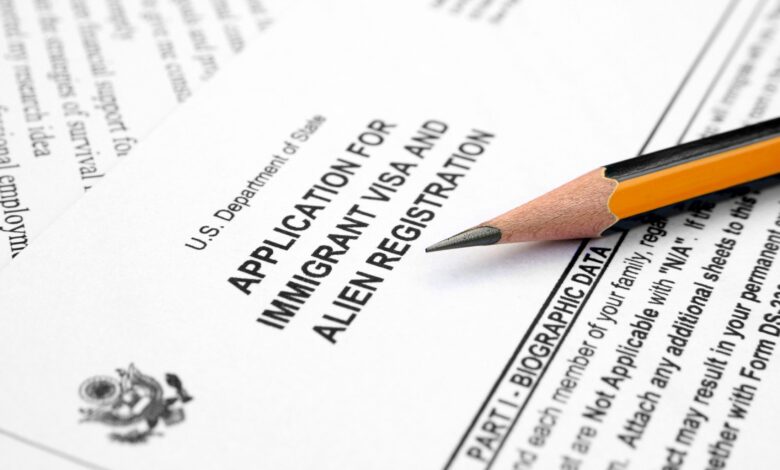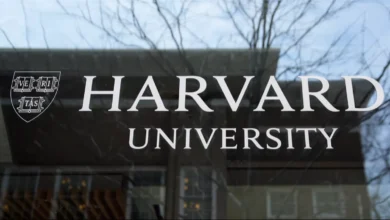Key Highlights of the Immigration White Paper: Family Reunification, Deportation Policies, and More

Explore the key points from the latest Immigration White Paper, including changes to family reunification rules, deportation policies, and other major immigration reforms.
Family
The Immigration White Paper, but a strong contender appears in paragraph 132. There, the government laments that “an overly high proportion of family-related immigration cases are now decided on the basis that they are ‘exceptional’ to the normal rules, rather than being in line with the rules set down by Parliament, and that undermines control and confidence.”

Many of those who rely on the “exceptional circumstances” provision under Appendix FM do so because they cannot meet the minimum income threshold, raised from £18,600 to £29,000. The Labour government has shown no intention of reversing this increase. Nor have they explicitly scrapped further hikes planned by the previous administration, which would see the threshold rise to £38,700. Instead, they have opted to commission a review of the proposals, expected in the near future.
The white paper cites early 2024 evidence suggesting the average income for applicants on the Appendix FM partner route is approximately £27,200. Taken together with removing jobs below RQF Level 6 from eligibility, the proposals appear to target lower-income applicants, raising concerns that Labour’s immigration policy may be pricing out working-class families.
As for the government’s proposed response to the perceived over-reliance on exceptional circumstances, the white paper hints that legislative reform may be on the way. Paragraph 152 outlines plans for a new framework to be approved by Parliament, governing applicants seeking entry or leave to remain in the UK based on exceptional circumstances outside the standard family policy.
ALSO READ: The immigration white paper has been published
This new framework is also intended to “limit successful claims” from individuals who attempt to circumvent the rules, for instance, by falsely declaring an intention to enter the UK as a short-term visitor, only to later apply to remain based on family ties.
Visitors are already barred from applying under Appendix FM unless they can demonstrate ‘unjustifiably harsh consequences for the applicant, their partner, a relevant child, or another family member,’ as outlined in GEN.3.2.(2). This is an exceptionally high threshold to meet, and it is difficult to see how it could be made even more stringent without breaching Article 8 of the European Convention on Human Rights.
On the surface, this appears to be a reasonable change. However, I suspect that my understanding of what constitutes a ‘spurious’ claim may differ from that of the Home Office. As always, I remain concerned about the limited access many individuals have to quality legal advice, which can result in valid claims being poorly presented through no fault of the applicant.
Make immediate claims for wider family members after arriving in the UK including after making dangerous journeys to get here.
Settlement
Positive developments in the white paper are relatively scarce, but there are a few welcome changes slated for implementation in the “near term”, likely in the upcoming Statement of Changes. These include the introduction of a new bereaved parent route, which will allow parents of British or settled children who have died to apply for immediate settlement, similar to the existing bereaved partner provision.
Additionally, the paper outlines measures to assist young people who have lived in the UK long-term and only discover upon turning 18 that they lack immigration status. It’s unclear what kind of scrutiny will be applied to claims of having been unaware of their status, and the use of the term “discovery” is somewhat troubling. The proposed route appears to be aimed primarily at children in care and care leavers, as suggested in paragraph 267.
ALSO READ: UK immigration crackdown jolts Nigerian youths
Dependant family members in other routes
The proposals outlined in paragraph 146, scheduled for implementation by the end of this year, primarily appear to expand existing provisions to include dependants of individuals on work and study routes. The forthcoming ‘family policy’ will:
The new “family policy,” set out in paragraph 146 and expected to take effect by the end of this year, primarily aims to extend relevant provisions to the dependants of individuals on work and study routes. It will:
- Protect the residency and citizenship rights of individuals who have served or are serving in HM Armed Forces, along with their dependants, in alignment with the Government’s commitments under the Armed Forces Covenant.
- Apply to all UK residents, including British citizens, those with settled status, individuals on work visas, and refugees, seeking to bring family members to the UK.
- Establish clear relationship criteria to ensure that only those in genuine, ongoing relationships qualify, help prevent forced marriages, and provide safeguards for victims of domestic abuse.
- Require incoming family members to demonstrate adequate English language skills to support successful integration into local communities. It will also expand financial requirements to additional dependant routes, ensuring families are financially self-sufficient and do not rely on public funds.
Extension of the child registration fee waiver to young adults?
Naturalisation comes with significant fees. While a fee waiver is currently available for certain children registering as British citizens, the white paper notes that the government “will consider measures to reduce the financial barriers to young adults, who have lived here through their childhood, from accessing British nationality.” This suggests a possible extension of the fee waiver process, though the details remain uncertain.
- FOLLOW US ON INSTAGRAM: Get the most important news on your social media feed
- FOLLOW US ON FACEBOOK: Get the most important news on your social media feed
- FOLLOW US ON X: Get the most important news on your social media feed
Survivors of domestic abuse
Paragraph 180 suggests that the long-standing firewall between the police and immigration enforcement, which has deterred some women from reporting domestic abuse, may finally be removed. This would be a positive and much-needed change, long advocated for by professionals and organisations working in this area.
Age assessments
The white paper mentions plans to “improve the robustness of the age assessment process,” including the exploration of scientific and technological methods to prevent adults from being incorrectly classified as children. It remains unclear whether this will involve implementing regulations introduced by the previous government.
Deportation
According to paragraph 185, the rules and procedures around deportation are set to be “simplified”, a term that, in the context of immigration law, often raises concern. The same section also mentions “further targeted action against any recent arrivals who commit crimes in the UK before their offending can escalate.”
Deportation powers will be expanded to include certain non-custodial sentences, as outlined in paragraph 236. Additionally, a current government amendment to the Border Security, Asylum and Immigration Bill would make individuals placed on the Sex Offenders Register ineligible for refugee status. Under the new proposals, such cases are also likely to result in deportation.
READ MORE: DIASPORA LENS




